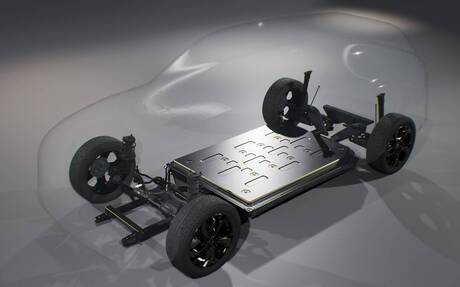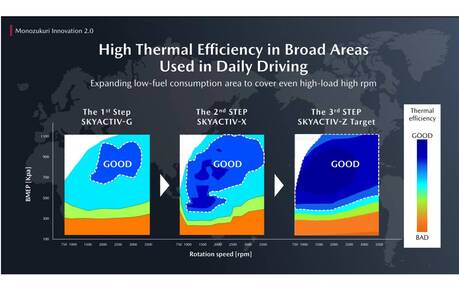Mazda Revises EV Plans, Delays Next-Gen CX-5
Mazda is joining a long list of automakers that have revised their electrification plans.
The small Japanese manufacturer today announced at a Multi-Solution Briefing Session held in Tokyo that it will reduce the expected 2 trillion yen investment in batteries and other areas to around 1.5 trillion yen ($19.2 billion to $14.4 billion CAD) by “utilizing existing assets and forming strong partnerships.”
- Also: 2025 Mazda CX-5 is Nine Years Old, Next Gen Still Not Ready
- Also: All-New 2025 Mazda CX-50 Hybrid Arrives, Offers Huge Gas Savings
It claimed the method has already been successfully demonstrated through the partnership with Changan Automobile in China, as well as with other technology partners like Toyota, Denso and BluE Nexus. Assembly line optimization will also help control costs.
Like a number of other automakers, Mazda wants to emphasize a multi-powertrain approach—including internal combustion engines, hybrids and battery EVs—as it strives to meet different driving environments and customer needs.

"As the automotive industry is going through a once-in-a-century seismic shift, Mazda keeps on evolving by updating our "joy of driving" for the next generation of vehicles,” President and CEO Masahiro Moro said. “All of us at Mazda are committed to striking the right balance of efficient business management and development of sustainable technology to deliver unique value regardless of business scale."
At the core of Mazda’s strategy is a brand new gasoline engine called SKYACTIV-Z. Unlike the SKYACTIV-X that came before, this one will be offered in North America, not just in Europe and other markets, and will meet U.S. LEV4 emissions standards. Combined with Mazda's hybrid system, it’s expected to make its debut in the next-generation CX-5... in 2027.

This means, by the way, that Mazda's compact SUV and bestseller will be more than 10 years old when its successor arrives, whereas the original CX-5 lasted only four years (2013-2016). Sure, the company now offers a fresher and more premium alternative, namely the CX-50, but the higher price doesn’t sit well with many potential customers.
Also during the Multi-Solution Briefing Session, Mazda reiterated that its next-generation battery-electric vehicle is also scheduled for 2027. It will be produced in Japan for global introduction, with battery cells developed in collaboration with Panasonic Energy Corporation.
